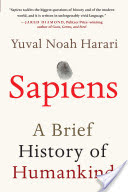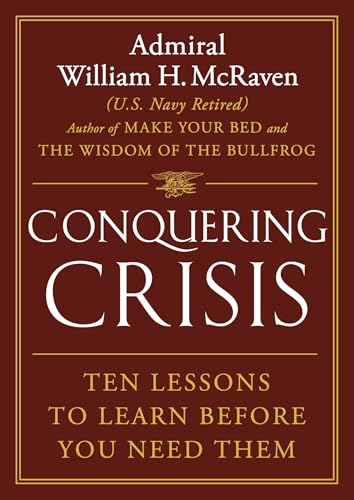Review of SAPIENS
by Johny McFliggen, PhD Literature & Business, Oxford
"Sapiens: A Brief History of Humankind" by Yuval Noah Harari is a book that dares to traverse the immense tapestry of our species' history with an audacity that can only be likened to the sprawling narratives of a Christopher Nolan film—ambitious, complex, and ultimately rewarding. Harari takes us on a journey from the inception of Homo sapiens to the dizzying heights of technological society, all the while asking us to reconsider everything we thought we knew about our past.
The Cognitive Revolution marks the first act in this grand drama, where Harari suggests that some 70,000 years ago, our ancestors developed the unique ability to imagine and communicate complex ideas. This evolutionary leap, akin to Neo's awakening in "The Matrix," allowed sapiens to forge unprecedented social bonds and outcompete other species. Harari's portrayal of this period is not just a nod to our cerebral dominance but a reminder of the fragility and fortuity of our ascent.
Next, we find ourselves trudging through the Agricultural Revolution. Harari paints this transition from foraging to farming not as a triumph of human ingenuity, but rather as a Faustian bargain. In his view, agriculture may have laid the foundation for civilization, but it also shackled us to laborious routines and societal hierarchies. It's an argument reminiscent of Jared Diamond's "Guns, Germs, and Steel," yet Harari's focus on the psychological and cultural shifts offers a fresh perspective on the costs of our so-called progress.
In the Unification of Humankind, we see Harari's flair for narrative as he weaves cultures, empires, and religions into a cohesive story about global cooperation. The idea that shared myths like money and religion unite humans on a massive scale feels almost like something out of "Game of Thrones"—where power and belief shape worlds. Harari's insight here is both illuminating and unsettling, as it suggests that much of what binds us is constructed from collective fantasies.
The final act—the Scientific Revolution—propels us into the present and beyond, examining how technological advancements redefine human identity and ethics. Harari raises poignant questions about biotechnology and artificial intelligence that echo concerns found in works like Steven Pinker's "The Better Angels of Our Nature," yet he remains more skeptical about the narrative of human progress. It's as if he channels the spirit of Mary Shelley's "Frankenstein," warning us about the monsters we might create in our quest for godhood.
Harari's background in history and his interdisciplinary approach lend "Sapiens" a scholarly gravitas, yet he never allows the academic weight to stifle his engaging prose. His ability to distill complex ideas into digestible narratives is reminiscent of Carl Sagan's knack for making science accessible to the masses. However, some critics argue that Harari sometimes oversimplifies or speculates too freely, sacrificing depth for breadth. While this critique holds some water, it overlooks the book's primary role as a catalyst for thought rather than an exhaustive account.
"Sapiens" is more than just a book; it's a cultural phenomenon that has sparked conversations across dinner tables and boardrooms alike. Its influence is undeniable, even if not every historical nuance has been captured with precision. For those willing to grapple with big ideas and question the trajectory of human history, Harari offers a narrative that's both thrilling and humbling—a mirror reflecting both our triumphs and our flaws.
Purchase Link: SAPIENS on Amazon

